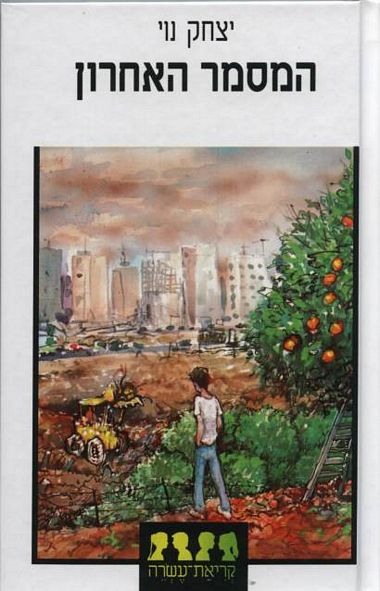
The Last Nail
Ilan, the novel’s narrator, tells a lyrical story that makes an eloquent plea for ecological awareness and respect for the past. Struck with meningitis at age seven, Ilan’s development has been set back, making him different from the other fourteen-year-olds. Ilan has his friend Yossi, and his father, a second-generation farmer who makes a living from his land on the moshav, the agricultural collective settled by Ilan’s grandfather Shimshon. The two boys value the old ways and hate the idea that the family’s orchard, first planted by Shimshon, is to be removed and a country club built instead. The farms dotting the countryside are islands of tranquillity, keeping the ill wind of modernity at a distance. Ilan’s arrested development echoes the time-warp of the moshav. He believes that the power of authority will be able to prevent the destruction. He appeals to various authorities, to no avail. An attempt to have the area declared a historic site fails and in the end the country club prevails. But so do friendship, tolerance and endurance.

